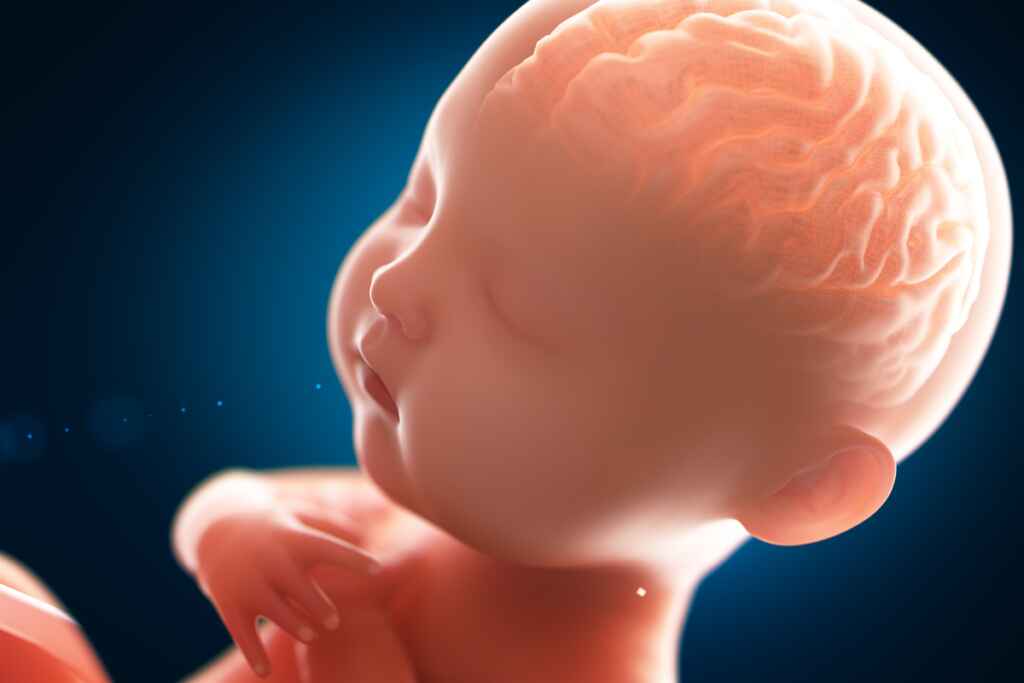Experience-related brain remodeling was first identified during critical periods of development. With sensory experience and input from the outside world, it creates interconnections and appropriate arrangements in the cerebral cortex.
In recent studies, it has been shown that the formation of the cerebral cortex due to experience continues not only in the early stages of development, but throughout the whole life. For example, the representation of the fingers of the left hand in the sensory cortex area of violin players shows a significant increase compared to those who do not play the violin. For this reason, any action taken consciously causes remodeling in the relevant areas of the brain over time. Despite this positive finding, repeated stressful situations cause shrinkage in the long-term memory region of the brain.
What should expectant mothers do before pregnancy?
Not all plans for the postnatal construction of the brain are found ready-made in the genetic structure. The capacity of genetic information to create this structure is already insufficient. Its structure and connections are shaped by experience and the environment. Accordingly, overproduction of nerve cell home connections followed by pruning leaves specially selected connections behind.
Experience fine-tunes the brain. But this fine-tuning is more than just a simple tweak. For this reason, care must be taken for the human baby even when it is in the mother’s womb. Feeding and breathing directly affect the offspring and the development of its nervous system. For this reason, alcohol and cigarette smoking should not be used, and a diet that is important for brain development should be chosen. Mozarts cannot be created by making the child listen to music in the womb. This is of no use. This is something that can be instilled in a child after birth. In an environment where music is listened, played and spoken, the child’s interest in music can be drawn.
In terms of nutrition, green vegetables, small fish containing omega and DHA should be given weight in the diet. In particular, omega 3s are foods that we call essential, which should be taken with external support, and their sources are generally seafood. Essential oils are very important for the brain, the brain is fat in a way and 70% of the cerebral cortex is made up of fat. An average of 50 grams per day of a fish such as sardines can be sufficient (about 350 grams per week). These oils pass from the mother’s cord to the baby and also pass into the milk during breastfeeding. Omega 3 can also be good for postpartum depression.
Pay attention to the air you breathe!
Not only what we eat, but also what we breathe affects our brain. Air pollution actually begins to affect people in the womb before they are born.
A study was conducted on 783 children between the ages of 6 and 10, who were born in Rotterdam, the Netherlands, between 2002 and 2006. These children were compared to the degree of air pollution their mothers were exposed to while they were in their mother’s womb, with their intelligence and brains later in life. The result showed an incredible danger. Thinner cerebral cortex was detected in children who were in the womb when fine particles increased in the air. Exposure to these fine particles has also been shown by psychological tests in the same children to weaken the brain’s control mechanisms during work or homework.
This means that the development of the brain is so sensitive that the structure of the brain, which is related not only to what the mother eats but also to what she breathes, changes when she is in the womb. Clean air means thicker cerebral cortex.
Vision is important for brain development
When the baby is born, he sees 25 cm and is blurred afterward. This distance is actually the required breast and mother face distance. Babies have a good sense of touch due to constant contact with the mother’s womb.
Immediately after birth, the baby can distinguish the smell of breast milk from other women’s milk. Breast milk is very sweet and tastes good. The sense of taste is developed. In the 4th month, he learns salt from his mother’s skin. In addition to all these, vision is the lowest at birth, color vision occurs almost in the 6th month.
Visually, babies look at the complex rather than the simple, so they look more at the complex upper part of the human face. From birth to 3 years of age, brain weight increases 3 times. All these processes develop better with experience and love and care. Of course, there are genetic influences from the parents, but if the brain is under the control of 1 unit of genetic influence, 3 units of the environment are shaped by the attention of the parents to the house.
Every parent should think that their child is actually reflecting an art of experience on his brain. Behaviors, attitudes, stimuli, and laughter all somehow act on the baby’s brain like kneading a play dough.

